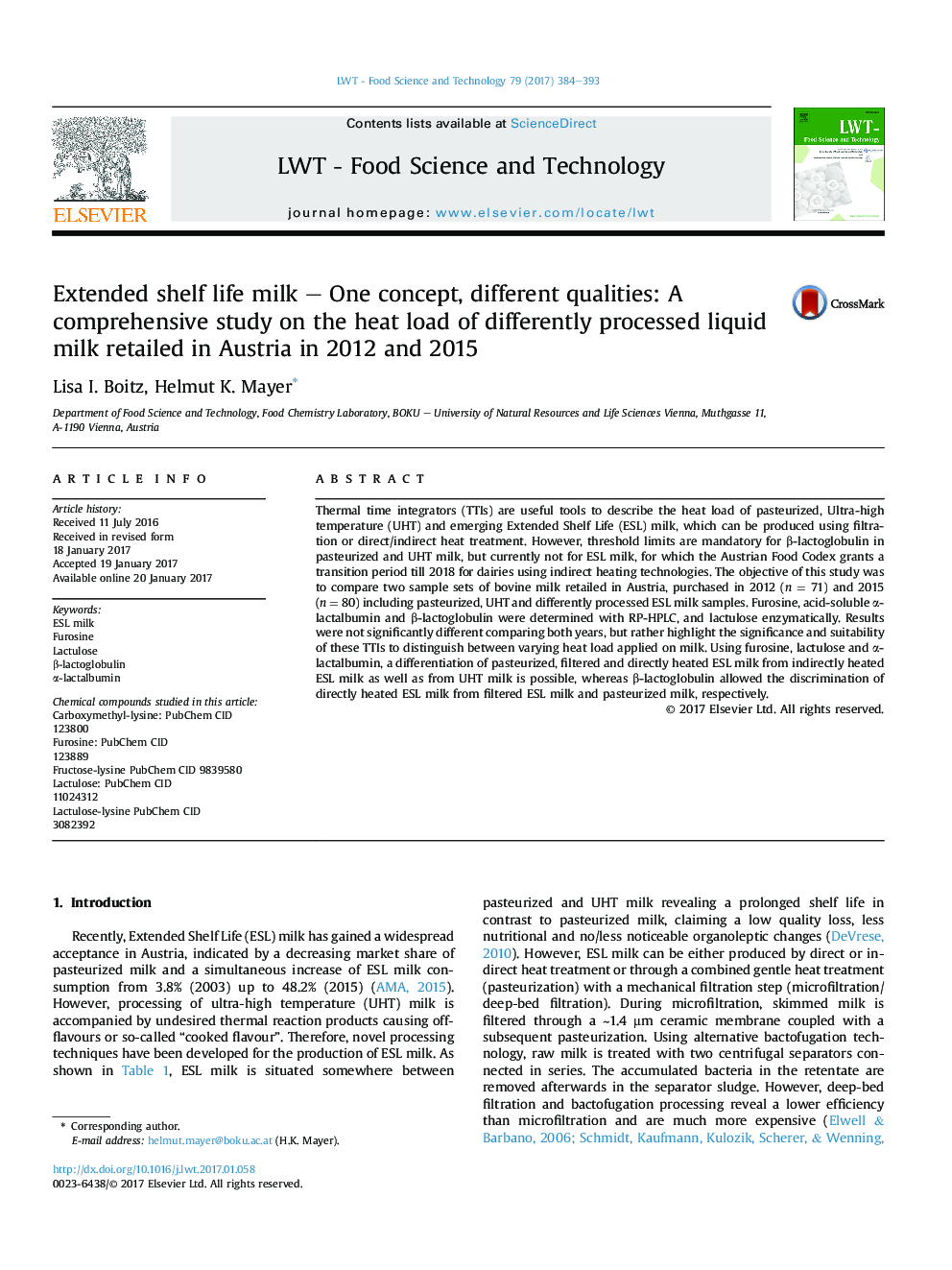| Article ID | Journal | Published Year | Pages | File Type |
|---|---|---|---|---|
| 5768785 | LWT - Food Science and Technology | 2017 | 10 Pages |
â¢Thermal time integrators (TTIs) are used for quality assessment of liquid milk.â¢Î±-La, β-Lg, furosine and lactulose were analysed in pasteurized, UHT and ESL milk.â¢No significant difference was observed between milk samples from 2012 to 2015.â¢Indirectly heated ESL milk shows poorer quality than other ESL milk.â¢Î²-lactoglobulin can discriminate directly heated ESL milk from others.
Thermal time integrators (TTIs) are useful tools to describe the heat load of pasteurized, Ultra-high temperature (UHT) and emerging Extended Shelf Life (ESL) milk, which can be produced using filtration or direct/indirect heat treatment. However, threshold limits are mandatory for β-lactoglobulin in pasteurized and UHT milk, but currently not for ESL milk, for which the Austrian Food Codex grants a transition period till 2018 for dairies using indirect heating technologies. The objective of this study was to compare two sample sets of bovine milk retailed in Austria, purchased in 2012 (n = 71) and 2015 (n = 80) including pasteurized, UHT and differently processed ESL milk samples. Furosine, acid-soluble α-lactalbumin and β-lactoglobulin were determined with RP-HPLC, and lactulose enzymatically. Results were not significantly different comparing both years, but rather highlight the significance and suitability of these TTIs to distinguish between varying heat load applied on milk. Using furosine, lactulose and α-lactalbumin, a differentiation of pasteurized, filtered and directly heated ESL milk from indirectly heated ESL milk as well as from UHT milk is possible, whereas β-lactoglobulin allowed the discrimination of directly heated ESL milk from filtered ESL milk and pasteurized milk, respectively.
